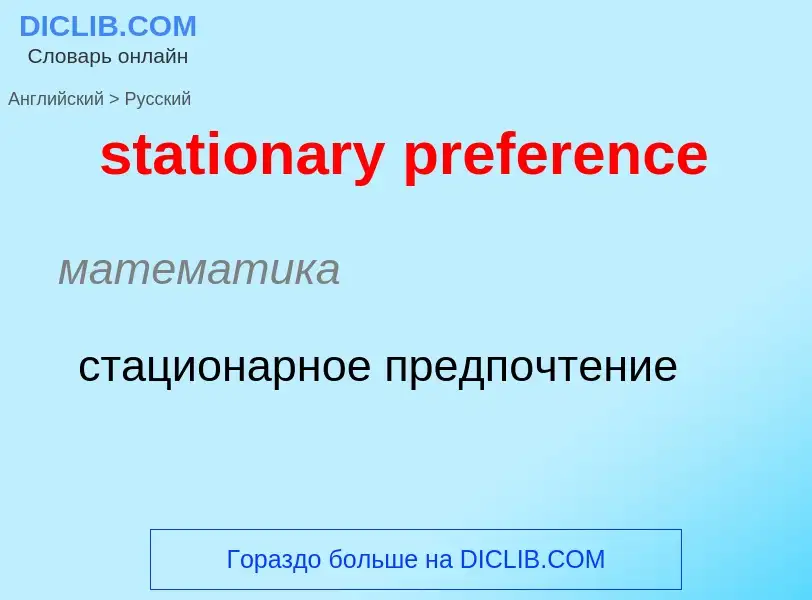Vertaling en analyse van woorden door kunstmatige intelligentie
Op deze pagina kunt u een gedetailleerde analyse krijgen van een woord of zin, geproduceerd met behulp van de beste kunstmatige intelligentietechnologie tot nu toe:
- hoe het woord wordt gebruikt
- gebruiksfrequentie
- het wordt vaker gebruikt in mondelinge of schriftelijke toespraken
- opties voor woordvertaling
- Gebruiksvoorbeelden (meerdere zinnen met vertaling)
- etymologie
stationary preference - vertaling naar russisch
математика
стационарное предпочтение
Wikipedia
Imperial Preference was a system of mutual tariff reduction enacted throughout the British Empire following the Ottawa Conference of 1932. As Commonwealth Preference, the proposal was later revived in regard to the members of the Commonwealth of Nations. Joseph Chamberlain, the powerful colonial secretary from 1895 until 1903, argued vigorously that Britain could compete with its growing industrial rivals (chiefly the United States and Germany) and thus maintain Great Power status. The best way to do so would be to enhance internal trade inside the worldwide British Empire, with emphasis on the more developed areas — Australia, Canada, New Zealand, and South Africa — that had attracted large numbers of British settlers.
The Dominions enacted policies of imperial preference in the late 19th and early 20th century: Canada (1897), New Zealand (1903), South Africa (1903), and Australia (1907). Due to its commitments to free trade, Britain did not reciprocate these trade policies until the 1932 Ottawa Conference amid the Great Depression.
The Ottawa Agreement had little, if any, effect on intra-Empire trade.




